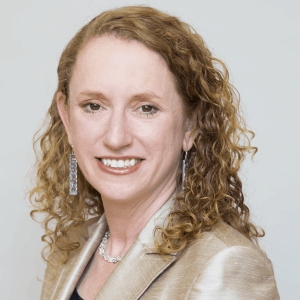The PEN Pod: Four Questions with Suzanne Nossel
 PEN America’s CEO, Suzanne Nossel, author of the upcoming book Dare to Speak and a recent op-ed in Foreign Policy on how truth has become another coronavirus casualty, sat down with The PEN Pod to answer questions on how the ongoing coronavirus crisis has led to an outbreak of disinformation, where to look for truth now, and what impact it’s having on our literary community. Read below for main takeaways from our conversation with Suzanne, and listen to the full interview below.
PEN America’s CEO, Suzanne Nossel, author of the upcoming book Dare to Speak and a recent op-ed in Foreign Policy on how truth has become another coronavirus casualty, sat down with The PEN Pod to answer questions on how the ongoing coronavirus crisis has led to an outbreak of disinformation, where to look for truth now, and what impact it’s having on our literary community. Read below for main takeaways from our conversation with Suzanne, and listen to the full interview below.
In your op-ed, you wrote that we’re experiencing the consequences of a virus of disinformation. What does that mean exactly?
It started in China, where in the very earliest stages of the virus, you had one particular doctor [Li Wenliang] who posted to a group of medical professionals saying, hey, I am seeing something disturbing, something new. He was charged with spreading rumors. And so, that slowed down the reaction time. Now it’s hit home. We have a president and an administration that have not been clear or consistent in following the science as they’ve communicated to the American people at the very early days of the epidemic here in the US. There has been a politicization of the truth, a desire to whitewash and kind of varnish the truth to minimize the political impact of this pandemic. And all of that interferes with people getting the hard facts that they need to take action.
“There has been a politicization of the truth, a desire to whitewash and kind of varnish the truth to minimize the political impact of this pandemic.”
It seems like we can’t quite trust what’s coming out of the White House and the Oval Office. Where do we look for truth?
I think the most credible sources are scientists and health professionals, the CDC, the National Institute for Infectious Diseases. I think the World Health Organization, for the most part, has proven trustworthy. Many of us, myself included, have fallen victim to receiving, by email or via social media, information that turns out to be false. And before we share that information, we really owe it to ourselves to verify where it’s coming from and make sure it’s truthful.
What impact is all of this having on the literary world?
Under the best of circumstances, it’s very difficult to make a living as a writer. And at a moment like this, where you can’t reach readers, you can’t participate in events that would provide you with honoraria income, you can’t promote your book, people are not focused on necessarily reading. They’re turning to reading for comfort, but they may be looking to books they have in their library. They’re not necessarily going out to their independent bookstore. So writers are hit hard. On the other hand, I would say people have been talking about so many instances in which plague has provided inspiration, whether it’s Bocaccio’s Decameron or Shakespeare writing King Lear when they’re under situations of quarantine. So the hope is this will generate some creativity, but we really need to think about steps to shore up the creative community.
“Before we share that information, we really owe it to ourselves to verify where it’s coming from and make sure it’s truthful.”
What are you reading or watching right now that’s either giving you a little bit of a distraction or more context to understand everything that’s going on right now?
Like everybody, I’m sort of obsessively clicking through all of the information on social media and connecting with friends all over the country and all over the world, and sharing information and insight that we’re gleaning about how to manage through these days, how to keep our kids busy, how to get along with our partners, and how to not go nuts at home. I’m also binge watching the Hillary documentary on Hulu, which is pretty fascinating, and I’ve gone back to Fleishman Is In Trouble, a novel that I had started a couple of months ago during vacation, and then when I got back to work, I had to abandon it. And now it’s quite delicious to go to jump back in.
Send a message to The PEN Pod
We’d like to know what books you’re reading and how you’re staying connected in the literary community. Click here to leave a voicemail for us. Your message could end up on a future episode of this podcast!






